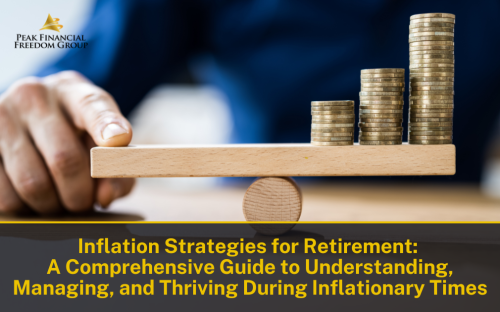How to Avoid Retirement Losses and Protect Long-Term Wealth
Avoiding Retirement Losses: Strategic Planning for Financially Established Households
When it comes to your retirement planning, one thing is clear: You can’t afford to make mistakes. What you have is what you have, and those assets must last the rest of your years of retirement. At Peak Financial Freedom Group, we’ve spent years helping people prepare for retirement by creating personalized, written retirement income plans designed to help you reduce risk, protect income, and increase peace of mind.
This isn’t about guesswork or gambling. It’s about strategy and financial planning. It’s about you having clarity, confidence, and control over your financial future. Let’s walk through what that really looks like.










